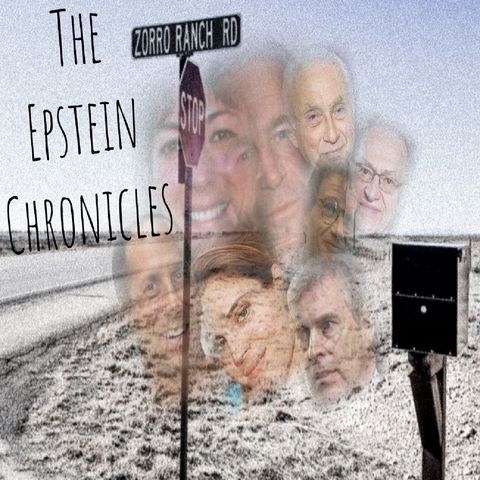Esplicito
A Look Back: Will Genetic Genealogy Lead Authorities To Rachel Morin's Killer?
3 mar 2024 ·
11 min. 43 sec.

Scarica e ascolta ovunque
Scarica i tuoi episodi preferiti e goditi l'ascolto, ovunque tu sia! Iscriviti o accedi ora per ascoltare offline.
Descrizione
Genetic genealogy is a field that combines traditional genealogy research with modern DNA testing techniques to trace familial relationships and ancestry through genetic information. It involves analyzing an individual's DNA...
mostra di più
Genetic genealogy is a field that combines traditional genealogy research with modern DNA testing techniques to trace familial relationships and ancestry through genetic information. It involves analyzing an individual's DNA to uncover their genetic heritage, connect with distant relatives, and map out family trees. This approach has gained significant popularity due to advancements in DNA sequencing technology, particularly in the form of direct-to-consumer DNA testing kits.Here's how genetic genealogy works and how it's used by investigators:
With Investigators still searching for answers about the identity of the suspected murderer of Rachel Morin, will genetic genealogy technology provide the break through that leads to an arrest?
Let's dive in!
(commercial at 8:34)
to contact me:
bobbycapucci@protonmail.com
source:
Forensic genealogy could solve Rachel Morin murder, but scientists face unique hurdles, experts say | Fox News
Become a supporter of this podcast:
https://www.spreaker.com/podcast/the-epstein-chronicles--5003294/support.
mostra meno
- DNA Testing: Individuals interested in exploring their genetic heritage and family history can submit their DNA samples through services provided by companies like AncestryDNA, 23andMe, and MyHeritageDNA. These companies analyze specific segments of the submitted DNA to identify genetic markers that are common among different populations and individuals.
- Genetic Markers: Certain sections of the DNA, particularly those found in the Y chromosome (passed from father to son) and the mitochondrial DNA (passed from mother to all offspring), contain genetic markers that can be used to identify ancestral lineages. Autosomal DNA, which is inherited from both parents, is also examined to find matches with other individuals in the testing company's database.
- Matching and Comparison: Testing companies compare an individual's genetic markers with those of other users in their databases. If two individuals share a significant amount of genetic material, they are considered genetic matches. The more segments of DNA they share, the closer their relationship is likely to be.
- Building Family Trees: Genetic genealogy involves constructing family trees using a combination of traditional genealogical research and the information gained from DNA matches. By connecting with other users who share segments of DNA, individuals can extend their family trees and discover new branches of their lineage.
- Identifying Common Ancestors: As more people participate in DNA testing, the chances of finding common ancestors increase. Overlapping segments of shared DNA can help identify specific ancestors or ancestral groups that are shared among related individuals.
- Forensic and Investigative Applications: Genetic genealogy has also found applications in criminal investigations. Law enforcement agencies have used DNA databases to identify unknown perpetrators of crimes like murder and sexual assault. In cases where traditional investigative methods have been unsuccessful, investigators can upload DNA profiles from crime scenes to genealogy databases and identify potential relatives of the suspect based on shared genetic markers.
- Building Family Trees for Identification: Once potential relatives of the suspect are identified, investigators work to build family trees using genealogical records, such as birth certificates, marriage records, and obituaries. By tracing the shared ancestry of these relatives, law enforcement can narrow down the list of potential suspects to a smaller pool.
- Narrowing Down Suspects: Investigative genetic genealogy can help law enforcement focus on specific individuals who fit the profile of the unknown suspect based on age, location, and other relevant factors. This process has led to the successful identification and capture of suspects in several high-profile cases.
With Investigators still searching for answers about the identity of the suspected murderer of Rachel Morin, will genetic genealogy technology provide the break through that leads to an arrest?
Let's dive in!
(commercial at 8:34)
to contact me:
bobbycapucci@protonmail.com
source:
Forensic genealogy could solve Rachel Morin murder, but scientists face unique hurdles, experts say | Fox News
Become a supporter of this podcast:
https://www.spreaker.com/podcast/the-epstein-chronicles--5003294/support.
Informazioni
Copyright 2024 - Spreaker Inc. an iHeartMedia Company
